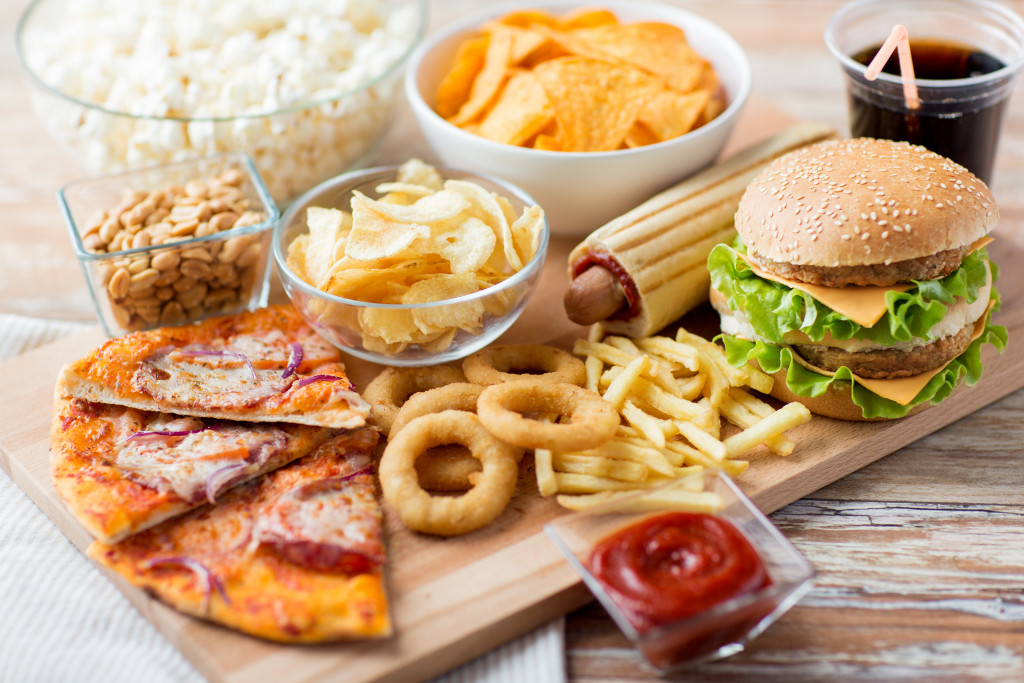For many people, controlling their eating habits can be a difficult task. Poor eating habits can lead to a host of health problems, both physical and mental. According to the Centers for Disease Control and Prevention (CDC), poor dietary choices are among the leading causes of death in the United States. Over 678,000 deaths every year were attributed to poor diet and physical inactivity.
People struggle with controlling their eating habits because of food addiction. Food addiction is an uncontrollable craving for certain foods associated with losing control and compulsive behavior. These addictive behaviors activate reward circuits in the brain that drive people to overeat despite feeling full or aware of possible negative consequences. Studies have shown that certain processed foods high in sugar and fat can be addictive, acting similarly to drugs such as cocaine or heroin on the brain’s reward pathway and triggering overeating behaviors in susceptible individuals. Other mental illnesses such as depression, anxiety, and stress can also contribute to overeating, as people may use food to cope with emotional distress or boredom.
It will take a lot of adjustments to develop healthier eating habits, but the following steps can help you start toward a better relationship with food.
Understand Your Situation
Understanding your problems with food and eating habits is essential for a successful recovery plan. For many people, emotional eating or binge eating can be a symptom of a deeper problem. It’s necessary to take the time to examine what may be causing your unhealthy relationship with food.
According to the National Eating Disorders Association, factors influencing disordered eating behavior include body dissatisfaction, diet culture, trauma, stress, depression, or anxiety. It’s also essential to understand how these issues connect and how they impact your overall well-being. Taking the time to reflect on these issues can help you identify areas that need improvement and create strategies and goals for long-term health and wellness.
In addition to reflecting on possible causes of your disordered eating behaviors, it’s beneficial to recognize triggers that trigger cravings or lead to overeating. Identifying triggers allows you to develop coping strategies such as mindfulness practices or distraction techniques like deep breathing or going for a walk to prevent an episode of binging or emotional eating.
Avoid Your Tics
Avoiding foods that contribute to your problem is essential to break unhealthy eating habits. Many people have difficulty avoiding their “comfort foods” or trigger foods because they are so tempting. To prevent cravings and binging episodes, try to limit the number of trigger foods in your environment. If you frequently indulge in specific snacks, remove them from your home or office and replace them with healthier alternatives like fruits and vegetables.
Unfortunately, avoiding food alone can still be challenging when you have an eating disorder. If you need help, you can rely on binge-eating disorder treatment programs to provide the necessary tools and strategies to help you break your emotional eating habits. Inpatient treatment centers or support groups can provide valuable resources, such as cognitive-behavioral therapy (CBT) and nutrition counseling, to help you learn how to make more mindful decisions about food.
Develop a Plan

The next step is to create a plan for healthier eating habits. This can include developing meal plans and conscious food choices that benefit your physical and mental health. Meal prepping can also be helpful for those who struggle with cravings during specific times of the day. Planning healthy meals ahead of time helps ensure that nutritious options are always available when hunger strikes. Additionally, try setting goals that focus on making gradual changes rather than trying to overhaul your diet overnight.
It’s also important to remember that any diet plan is not a one-size-fits-all solution. You may need to experiment with different eating habits and lifestyle changes to find what works best. Be sure to keep track of your progress, and don’t be discouraged if it takes time for change to occur.
Commit to the New Lifestyle
As much as changing your diet can be difficult, committing and sticking with the new plan is essential. This means having the mental strength to resist old temptations and avoid turning back to unhealthy habits. To keep yourself motivated, you can create reminders or goals to stay on track with your progress. Additionally, try celebrating your successes instead of focusing on any setbacks. Small rewards can help motivate you to continue making positive lifestyle changes.
Finally, don’t forget about self-care! Eating healthy doesn’t mean depriving yourself of nourishment and other enjoyable activities such as exercise or spending time with friends. Balance is critical for long-term success, so you don’t become overwhelmed by the process.
Final Thoughts
You can take steps towards a healthier lifestyle by taking control of your diet and understanding the causes of your unhealthy eating behaviors. With consistency, patience, practice, and self-compassion, you can learn to make better food choices that promote both physical and mental well-being. Although it may be difficult initially, remember that progress is possible when you’re willing to make positive changes. With the right tools and support, you can take control of your diet and lead a happier, healthier life.


